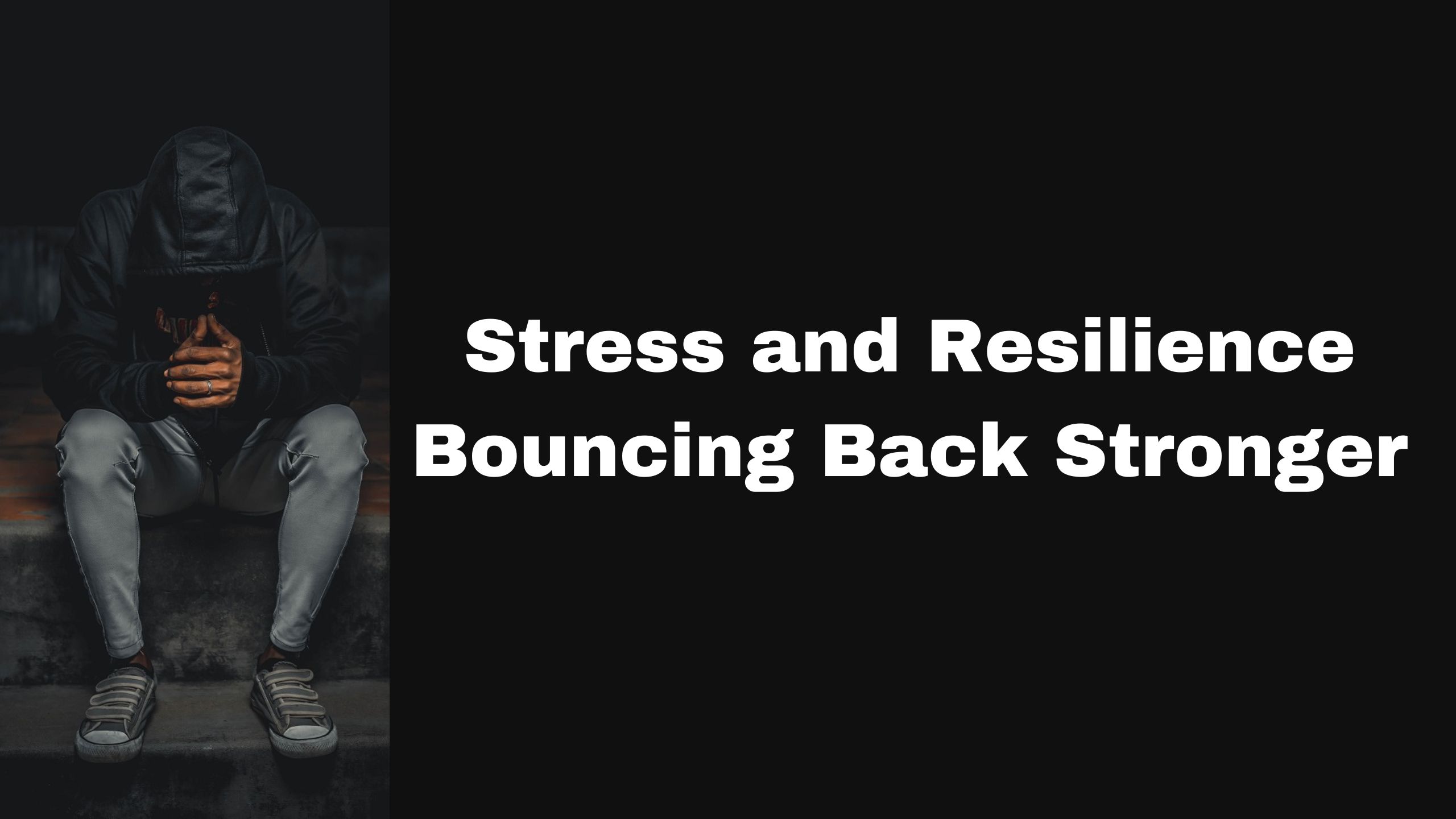Stress and Resilience: Bouncing Back Stronger
Stress is an inevitable part of life, and it can take many forms – from everyday challenges to major life events.
While stress can be overwhelming, it’s essential to recognize that it also provides an opportunity for growth and resilience.
Building resilience, the ability to bounce back from adversity, is a valuable skill that can help individuals not only cope with stress but emerge from it even stronger.
Understanding Resilience
Resilience is the capacity to adapt to difficult situations, overcome adversity, and rebound from setbacks. It’s not about avoiding stress or pain but rather about facing them with strength and determination. Resilient individuals are better equipped to manage stress, maintain their mental health, and thrive in the face of adversity.
The Stress-Resilience Connection
Stress can be a powerful teacher, and it’s through facing and navigating stressors that resilience is developed. Here’s how the stress-resilience connection works:
Adversity as a Learning Opportunity: When individuals confront stress, they often develop problem-solving skills, emotional intelligence, and coping mechanisms. These skills are valuable in building resilience.
Challenging Assumptions: Stress can challenge our preconceived notions and beliefs about ourselves and the world. This process of self-reflection can lead to personal growth and a deeper understanding of one’s capabilities.
Mental Toughness: Resilience involves mental toughness – the ability to stay focused and positive during challenging times. Stress provides an opportunity to strengthen this mental fortitude.
Social Support: Resilient individuals often have strong social support networks. Stress can strengthen these relationships as friends and family come together to provide encouragement and assistance.
Strategies for Building Resilience
Here are some strategies to help you build resilience in the face of stress:
Maintain a Positive Outlook: Cultivate a positive attitude and focus on your strengths. Optimism can enhance your resilience.
Develop Problem-Solving Skills: Instead of ruminating on problems, work on developing effective problem-solving skills. Break challenges into manageable steps and tackle them one at a time.
Build Social Connections: Lean on your support network during stressful times. Share your thoughts and feelings with trusted friends or family members.
Embrace Change: Accept that change is a part of life and adapt to it. Resilience involves a willingness to adjust to new circumstances.
Set Realistic Goals: Set achievable goals for yourself. Meeting these goals can boost your confidence and resilience.
Self-Care: Prioritize self-care through exercise, proper nutrition, and adequate sleep. A healthy body supports a healthy mind.
Practice Mindfulness: Mindfulness and meditation can help you stay grounded and reduce the negative effects of stress.
Seek Professional Help: If you find it challenging to cope with stress or develop resilience on your own, consider seeking the assistance of a therapist or counselor.
Conclusion
Stress is an inevitable part of life, but it doesn’t have to define your existence. By developing resilience, you can face adversity with confidence, adapt to change, and emerge from stress stronger than before.
Resilience is not a fixed trait; it’s a skill that can be cultivated over time through self-awareness and deliberate practice.
Remember that building resilience is a personal journey, and it takes time and effort. Embrace the challenges that stress brings as opportunities for growth, and you’ll find that you can not only bounce back from adversity but also become a stronger and more resilient individual as a result.

